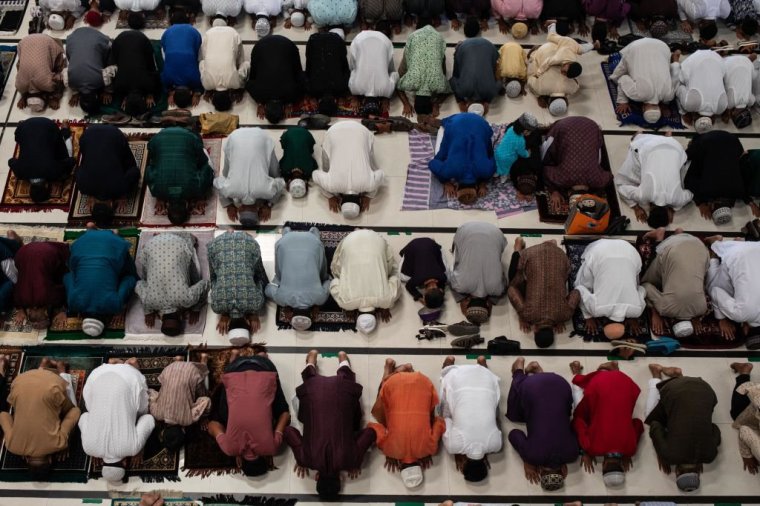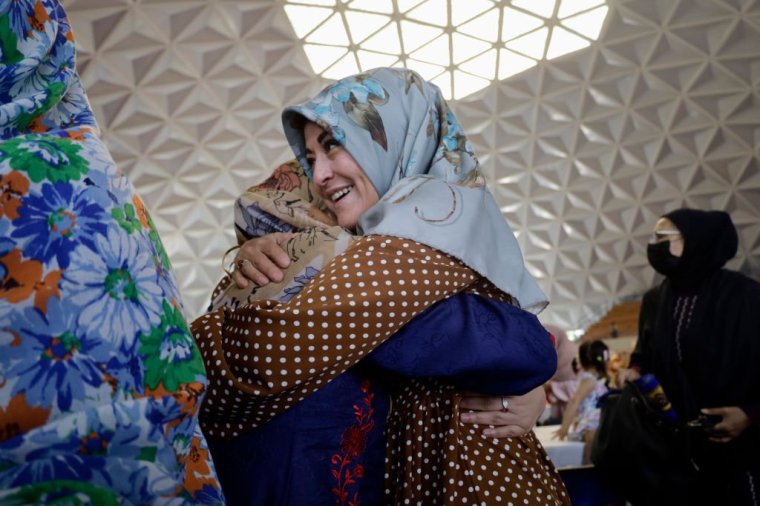One of the most important festivals in the Islamic calendar, Eid al-Adha, will take place in June. With close to 3.9 Muslims now living in the UK, the holiday has taken on a greater significance amongst Britons.
Known as the festival of sacrifice, followers tend to eat meat (sheep or goat) to celebrate, with the food traditionally served equally between family, friends and the poor.
With the Muslim world having already celebrated Eid al-Fitr, many are now counting down to Eid al-Adha.
Here is everything you need to know about the festival and when the celebrations are due to begin.
What is Eid al-Adha?

Eid al-Adha commemorates the moment when the prophet Ibrahim had a dream, believing it to be a message from God (Allah). In this dream, Allah asked Ibrahim to sacrifice his son Ismail in an act of obedience.
However, the story goes that the devil tempted Ibrahim, urging him to ignore Allah and spare his son. But Ibrahim ignored him and just as he was about to carry out the sacrifice of his beloved son, Allah intervened and provided a lamb for him to sacrifice instead.
The tale is told both in the Quran and the Bible – where the protagonist is called Abraham.
It is now celebrated and observed as a time to visit loved ones and donate money to charity, ensuring that even the less fortunate can partake in the celebrations.
When is Eid al-Adha 2024?

In 2024, Eid al-Adha is set to begin on the evening of Sunday 16 June. It lasts for four days and will finish on Thursday 20 June.
The Islamic calendar is based on the sighting of the moon, which means it often cannot be calculated in advance with complete accuracy.
It also means that the date of Eid-al-Adha changes each year.
There is some debate as to whether a moon sighting should refer to physically witnessing the moon in a particular region, which could be hampered by factors such as weather conditions, or whether to defer to sightings in Saudi Arabia, such as its supreme court, whose official verdict is followed by many Muslims across the world.
How is Eid al-Adha celebrated?
Eid al-Adha usually starts with Muslims going to the mosque for prayers. They dress in their best clothes and give thanks to Allah for their blessings.
After the Eid prayer on the first day of Eid al-Adha, a sacrifice known as Qurbani is performed to commemorate the sacrifice made by Ibrahim.
A sheep or a goat is usually slaughtered, with the meat shared equally between family, friends and the poor.
Eid al-Adha is also a time for Muslims to visit family and friends. At this time of year, it’s also customary to give money to charity.
How do you wish someone a ‘happy Eid’?
The traditional greeting is simply “Eid Mubarak” (pronounced “Eed Mu-ba-rack”), which means “have a blessed Eid” or “happy Eid”. A typical response to this might be “Khair Mubarak”, which wishes goodness on the person who greeted you.


I'm 78 - and this is my biggest challenge